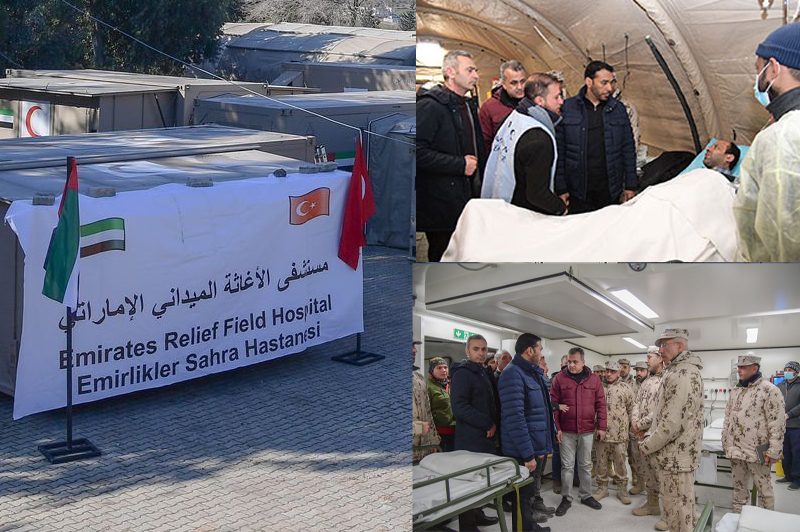
Turkey-Syria Earthquake: UAE inaugurates largest field hospital in Gaziantep
Immediately after it was equipped and the arrival of teams of doctors, technicians, and administrators, the 50-bed Emirati Relief Field Hospital in the Turkish city of Gaziantep began its humanitarian mission by receiving those affected by last week’s earthquake.
The hospital, located in an area measuring 40,000 square metres, is classified as a level III field hospital as per international classification, said Staff Brigadier Dr. Abdullah Khadem Al Ghaithi, Commander of the Emirates Relief Field Hospital, noting that it performs critical surgeries.
It includes 50 beds and four intensive care beds, in addition to various departments, including reception, screening, dentistry, x-ray, emergency, surgery, intensive care, laboratory, pharmacy, and outpatient sections, he added.
Keep Reading
The medical staff includes 15 doctors of various specialities and 60 nurses and technical assistants. Psychologists who can help victims suffering from quake-induced anxiety, depression, and post-traumatic disorders are also a part of the team, the commander of the field hospital further mentioned.
It is considered the first third-level field hospital, meaning it is fully equipped and staffed, and has the capacity to carry out major and complex treatments. While a level I field hospital is a non-surgical unit (dispensary) that sorts patients and performs first aid, the one classified as a level II unit majorly deals with minor surgeries.
The Emirati Relief Field Hospital in Gaziantep has been set up as part of the ‘Gallant Knight/2’ humanitarian operation, an initiative launched by the Joint Operations Command of the Ministry of Defence, under the directives of UAE President HH Sheikh Mohamed bin Zayed Al Nahyan. The operation represents the Emirates’ commitment to its humanitarian obligations and its keenness to support victims of war and disaster around the world, irrespective of region, religion, and diplomacy.
Read More:- Quake-ravaged Syria to open more border crossings for foreign aid delivery




